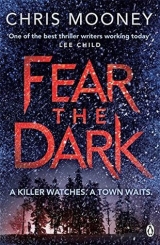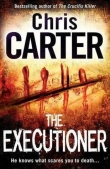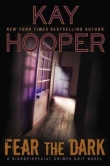
Текст книги "Fear the Dark"
Автор книги: Chris Mooney
Соавторы: Chris Mooney
сообщить о нарушении
Текущая страница: 4 (всего у книги 26 страниц)
11
While Darby had been in the MoFo, the bodies had been removed and taken to the medical examiner’s office in Brewster, which serviced Red Hill as well as four other nearby towns. The ME’s office, Williams had told them, was, because of years of steep cutbacks, woefully understaffed, and there was a backlog of autopsies. The office had only one full-time doctor on staff. The part-time doctor who had been helping out had retired at the end of last year, and the office’s request for a deputy coroner had been denied.
She didn’t need to explain the importance of having an autopsy performed before the organs had completely deteriorated. Williams had followed the morgue van to Brewster to plead his case to Ben Stern, the district coroner and chief medical examiner. Williams promised he’d beg – on his knees, if necessary – to get the autopsies slated for sometime tomorrow.
Darby doubted Ray Williams would have to go to such lengths. Like Coop, the Red Hill detective had been blessed with effortless charm, someone who could get both men and women to do favours, pull strings and jump through hoops with smiles on their faces.
Darby entered the house. She put on a mask, then signed the log and moved up the stairs. Coop appeared in the bedroom doorway, his head and face covered by a hood and a respirator mask.
‘Bad news on the duct tape,’ she said to him. ‘No prints on the adhesive side. The smooth side, I don’t know yet; they’re in the Superglue Chamber.’
‘Not that surprising. We know this guy’s careful.’
‘What I did find, though, was a small piece of latex that’s marked with what looks like ink. If we can get sweat or some skin cells off it, we might have a DNA sample.’
‘Otto and I just finished using luminol. Our man didn’t use bleach to wipe down anything inside the bathroom, and he didn’t dump it down any of the drainpipes either. We took them apart and swabbed them just to be sure. Now come and take a look at this.’
She followed him to the corner of the bedroom. A square section of flooring had been removed and then taken apart and placed inside evidence bags.
‘In addition to using Mr Clean on this area, he also used bleach,’ Coop said. ‘I sprayed it with luminol and everything glowed. The hardwood is old and scuffed – it’s probably the original flooring. The poly sealant is pretty much gone, which is good news for us. The chemicals and rag or whatever he used couldn’t penetrate the crevices between the boards.’
‘You find blood?’
‘Yeah,’ Coop said. ‘A ton of it.’
I find Red Hill incredibly depressing this time of year – grey winter mornings and short afternoons where the wind hits your skin like a drill bit, keeping people off the streets and tucked inside their homes. By 4 p.m., the world is swallowed inside a pitch-black darkness.
And yet it is during this time – what I call my ‘black hole hours’ – when I feel the most alive – when the part of me that I keep hidden during the daylight is wide awake, throbbing for attention.
Just a glimpse, I tell myself as I drive. Just a glimpse, and then I’ll go home.
My destination tonight is two towns away, a place called Kelly’s Bar and Restaurant. I have no idea if Tricia’s working tonight; this trip is a last-minute idea, a way to clear my head and think. Still, my heart sinks into an acid pit of worry and fear at the idea of her not being there. I need to see her tonight or I won’t be able to sleep.
When I pull into the parking lot, I spot a white Honda Civic with a battered rear bumper and a University of Denver decal stuck to the rear window. The anxiety caged inside my chest uncoils, and I immediately feel myself start to relax.
The bar’s Christmas decorations are still up. A fake wreath hangs on the front door and, secured to a railing with a bungee cord, is a big, glowing plastic Santa that I’m pretty sure was rescued from a garbage dump. It’s scraped and stained; a chunk of plastic the size of my fist is missing from Santa’s head.
The interior is small, just a handful of tables sprinkled around a U-shaped bar of polished walnut, its edges decorated with white lights shaped like icicles. The warm, fetid air smells of fried food, even though the dining-room tables are empty, and there is only one person seated at the bar, an old timer wearing a red flannel shirt. His ruddy cheeks are peppered with patches of grey whiskers, and the remaining wisps of white, downy hair lie across his liver-spotted scalp like feathers.
Standing behind the bar and refilling his glass with cheap Scotch is the purpose of my visit: Tricia Lamont, a leggy marvel with a prominent nose and jawline, her dark brown hair with its expensive blonde highlights spilling across her shoulders and falling in tangles against the V-neck scoop of a black T-shirt embossed with the bar’s name and slogan – KELLY’S. WHEN YOU’RE HERE, YOU’RE FAMILY. The tee barely fits her. Whoever owns this place makes his ladies (he employs only women, each one no older than thirty) wear a tee one size too small so it hugs their firm and perky breasts. Every time one of them bends over or leans forward to pour a drink, as Tricia is doing right now, the bottom of the tee rides up just a wee bit to show a tantalizing flash of belly, every one of their stomachs as flat as a board.
I pull out a corner stool. I’m hanging my coat over the back when Tricia walks up to me, smiling brightly. She doesn’t know my name, and she has seen me only once – last month, the week before Christmas. The Connelly family – John, Lisa and their sixteen-year-old daughter, Stacey, who were, at that time, the Red Hill Ripper’s latest victims – had been laid to rest that afternoon, and I decided to stop by here for a drink. The family and whatever mistakes that might possibly have been made at the crime scene weighed heavily on my mind.
‘What can I get’cha?’ Tricia asks, her eyes seemingly alight with genuine pleasure.
‘You have Knob Creek bourbon?’
‘Sure do.’ She smiles. ‘You have great taste.’
‘Make it a double, neat.’
As she moves to the bottles, I watch her, lustfully conjuring up all sorts of wonderful scenarios of her lying naked in my bed, the soft moan that escapes her lips and caresses my ear as I enter her. The feel of her thighs sliding up against the sides of my chest and the moment when she presses the balls of her feet against the small of my back and pushes, begging me to go deeper …
Is Tricia a fighter? Or will she act like the others, mewing and crying and begging for it to stop?
Sarah never fights or cries. Even in the beginning when she first saw the rope, she did what I asked with a smile on her face.
Tricia comes back with my drink and places it on a napkin. She tucks her hair behind an ear, playful and sexy. I suspect – correctly, I think – that Tricia, with her beautiful looks and hard yoga body, belongs to that class of women who view men as walking wallets. A woman who wants to squirt out a kid or two, then hire a nanny so she can drive her new BMW to her Pilates class and then spend the afternoon inside a hotel screwing some young stud.
‘Want to start a tab?’
Absolutely. I want to stay here and drink and watch you and feed my growing hate and think about that moment when I slip the noose around your neck.
The phone behind the bar rings. ‘Excuse me,’ she says, and as she walks away I think about what an odd choice she is for me. The four other candidates I have in mind are nowhere near as attractive or as physically fit, but at least I’ve meticulously researched their backgrounds. Their routines, habits and schedules. I’ve been inside their homes and on their computers. I’ve slept in their beds.
That’s not the case with Tricia Lamont. I know she’s twenty-two, a graduate from the University of Denver with a degree in business communications. Like the good majority of recent college graduates trying to enter the workforce in this monstrous economy, she’s had a difficult time landing a job, which is why she’s most likely living back home with her parents, Rick and Jennifer, who own three dry-cleaning stores. Tricia works at one and supplements her income by bartending here. I don’t know if she has a serious boyfriend or if she’s playing the field or whatever these young whores call it these days. I haven’t read her texts or been on her computer yet.
My thoughts shift to the tools sitting inside my trunk. Everything I need to break inside her house is in there. I could leave here and, if her parents aren’t home, let myself in and play with her things for an hour or two. I’ve already cased her house. I know the best way to approach it without being seen, and I know the perfect spot where I can park my car.
It’s tempting. As I sip my bourbon, I actually consider it for a moment.
But I know better. Everything comes down to impulse control. That’s the key to not getting caught. You don’t strike or take any action when you’re fevered with bloodlust, as I clearly am right now. You plan meticulously and then you execute the plan so you don’t make any mistakes. And I can’t afford to make any mistakes, especially now that the FBI are in Red Hill.
The news has been circulating all over town for the past week. That’s the downside to living in a place as small as Red Hill; anything out of the norm instantly burns its way like a brushfire across the town’s grapevine. Terry Hoder, the famous monster hunter, is here in Red Hill to track down the Red Hill Ripper – it’s all anyone’s talking about.
I smile and sip my drink. The Red Hill Ripper. What a ridiculous name.
Tricia stands at the other end of the bar, her back to me as she talks on the cordless. I stare at her, marvelling at the way her dark jeans hug her ass, and wonder if she does that hot yoga thing, Bikram. Probably does that with her girlfriends and then they all go out afterwards to Starbucks and order low-cal scones and skim-milk cappuccinos and talk about how they use men.
I have plenty of time to find out. I can wait. Hoder can’t. At some point Hoder and his band of merry men will pack up and leave, and then I’ll decide when to take Tricia or one of the others. They’re not going anywhere, my candidates. All I have to do is wait and be patient. Then, when the time is right, I’ll choose one.
Maybe I’ll bring Sarah along with me. No matter what time of night, people aren’t afraid to open the door to a woman.
Tricia laughs. It’s a lovely sound.
I wonder what her screams would sound like.
Just a glimpse, I promised myself. And now I’ve had it. Besides, there’s one other thing I need to do before I go home. I knock back the rest of my bourbon and place a ten on the table. I pick up my coat, feeling warm and comfortable and satisfied. Hopeful.
12
By 6 p.m. they had finished processing the master bedroom and bath, Samantha Downes’s bedroom, the living-room floor and the back deck off the sliding glass door. Darby’s lower back ached and her mind felt cramped from hunger and the fatigue that was working its way through her limbs.
They had collected the usual preliminary evidence found at a homicide – hairs and fibres from the bodies and rooms as well as an assortment of fingerprints, all of which, Darby suspected, belonged to the Downes family. The footwear impressions on the living-room floor were matched to footwear belonging to the family. No fingerprints had been found on either the toilet or the blue plastic bucket, which suggested he had wiped everything down. And he had taken away whatever rag or towel he’d used on the bedroom wall, because they hadn’t found it in any of the garbage cans.
Darby had checked the family’s medicine cabinets. While David Downes took medications for high blood pressure, insomnia and several anti-depressants for anxiety and depression, Darby hadn’t found a prescription bottle for neomycin belonging to him, his wife or his daughter, nor had she found an empty one in the trash. They’d need a court order to access the family’s medical records to see if any of them had been taking the antibiotic.
Coop had also found a ‘plastic’ fingerprint on the skirting board – a three-dimensional friction-ridge impression created when someone presses a fingertip in fresh paint, soap, hot wax, tar or car grease. In this case, it was in polyurethane. The skirting board had been treated with the polymer years, maybe decades, ago. There was no way the Red Hill Ripper could have left the print, but procedure dictated that Coop process the print anyway. He would use it later, in the courses that he taught at the FBI Academy, where students, forensic investigators and law enforcement officers learned how to identify and retrieve tricky prints from various surfaces.
The mobile lab’s satellite was down and could be fixed only in Denver. MoFo Coop, along with Otto and Hayes, would go there to work on the rest of the collected evidence.
Coop had another reason for wanting to go to Denver tonight: the Regional Computer Forensics Laboratory, an FBI-sponsored and accredited full-service digital forensics laboratory and training centre that worked with law enforcement agencies in Colorado and Wyoming. RCFL had agreed to examine all the home and business computers and tablets belonging to the Downes family.
The Denver RCFL facility also had a cell phone kiosk that utilized a newly developed FBI technology called UFED, short for the Universal Forensic Extraction Device. It could download data from any cell or smart phone and collate it into a report, which could then be burned on to a CD or DVD in as little as thirty minutes. Use of the kiosk, however, was by appointment only, and Coop had booked a slot for tomorrow at 11 a.m.
It was now coming up on seven. Darby stood with Coop inside the kitchen, cataloguing evidence. Hoder, who had been on his feet most of the day, balancing his weight on his cane, had returned to the hotel so he could ice his swollen knee. He wouldn’t be making the trip to Denver.
‘I want you to stay here, in Red Hill,’ Coop said.
Darby looked up.
‘If Williams can get the autopsies scheduled for tomorrow, one of us should be here. Besides, I’ll have help in Denver.’
Darby felt relieved. She wanted to spend the evening going through the evidence files. A long-time sufferer from motion sickness, she had never been able to read or concentrate while in a car.
‘Sounds good,’ she said, and went back to writing.
‘Really?’ Coop asked in mock surprise. ‘Here I was expecting an argument.’ He handed her the keys to his rental and added, ‘You must be getting mellow in your old age.’
As Darby wrote, she thought about the plastic bag that had been stuck to David Downes’s face like a cobweb, his skin pale and sweaty beneath the bag, the thinning remains of his fine brown hair matted against his scalp and forehead. Several strips of duct tape had been wrapped around his mouth and the back of his head.
But it was the man’s eyes, wide and nearly bulging from their sockets, that haunted Darby; how, after the bag had been removed, they had been locked on his daughter. Intimately familiar with the mechanics of death, she could feel the man’s terror – could feel the plastic bindings biting and then cutting through his skin as he thrashed about with the bag taped over his head, sucking in the last few breaths of precious oxygen through his nose and unable to see his wife or daughter but able to hear Samantha begging and pleading and screaming.
Coop was saying something to her.
‘Sorry, what’s that?’ Darby asked as she continued writing.
‘I said I hope there aren’t any surprises when this case goes to court. You know how lawyers can get.’
‘Which is why we should put this guy in a body bag.’
Darby caught Coop’s reproachful glare. ‘You can’t treat, let alone cure, a sexual sadist, Coop. There’s no therapy or psychotropic-medication regimen that will bring them anywhere near the neighbourhood of normal, that will allow them to feel remorse or empathy. If you don’t want a sadist to kill again, you either lock him up for life or you put him down.’
‘And you’re for putting him down.’
‘Why should taxpayers have to pick up the tab for someone who’s the mental equivalent of a rabid dog?’
Coop studied her face.
‘You don’t resolve evil, Coop. You extinguish it.’
‘You might want to keep these thoughts to yourself while you’re out in the dating pool. Just a suggestion.’
After Coop and the others left, Darby sat alone in the house, waiting for the patrolman to deliver copies of the case files, which had been promised by Williams.
The man arrived a few minutes past 7.30. He had a handlebar moustache and smelled of pipe tobacco. The nametag stitched into the breast of his coat read MILLER. He stood on the front porch, and he didn’t ask to come in.
Not that Darby would have let him: every person allowed access to a crime scene increased the risk of contamination or the destruction of evidence.
‘Evidence files are in my trunk,’ the patrolman said to Darby. ‘You done in here?’
Darby nodded. ‘Does Williams want me to seal the door?’
‘No, just lock it up. Mike will seal it.’ Miller jerked a thumb over his shoulder, in the direction of the patrol car parked in front of the driveway. ‘He’s taking the night shift.’
‘Williams told me David Downes had a secretary, Sally something.’
‘Sally Kelly.’
‘Do you know her address? I’d like to talk to her tonight.’
‘I don’t know it off the top of my head, but I can get it for you.’
Darby grabbed her jacket and the keys to Coop’s rental. She placed the time of her departure on the security log, shut off all the lights and locked the door behind her. She carried her box of evidence to Miller’s patrol car, where she exchanged it for one stuffed with files.
Miller had written Sally Kelly’s address on a piece of paper. Darby plugged it into the GPS.
The faces of the dead crowded her thoughts as she drove through the pitch-black roads. They had streetlights, but they were turned off. She suspected the struggling town had cut the power to save money.
Darby was halfway through her sixteen-mile trip when she realized she’d left her kit at the house. She wanted to use her own equipment at the autopsies that she hoped would take place tomorrow. Not wanting to have to get up early to come and retrieve it, she turned around and backtracked to the Downes home.
Fifteen minutes later, when she pulled up against the kerb and parked a few feet behind the police cruiser assigned to watch the house, she felt her throat constrict, her breath like shards of glass trapped in her chest.
The lights for the master bedroom had been turned on.
13
Darby could see a shadow moving behind the shade facing the street. Then she looked to the cruiser bathed in the beam of her headlights and, seeing it was empty, killed the headlights and the ignition. She pocketed the keys as she threw open the car door, the veins in her temple and arms humming with what felt like an electrical charge.
This isn’t your case, an inner voice warned. You’re a consultant, nothing more than a hired hand. Cool it or you’ll get bounced.
Darby walked on to the driveway and saw a silhouette out of the corner of her eye. The patrolman assigned to watch the house stood in the woods to her right, steam rising from the tree where he was relieving himself.
Darby didn’t break stride; she continued towards the house.
‘Nature called,’ he said, fumbling with his zipper as he staggered down the slope of snow. ‘You know how it is on a watch.’
Darby didn’t answer.
The patrolman chased after her. Then he darted in front of her, blocking her access to the walkway.
‘Something I can help you with?’
‘You can get out of my way,’ Darby said.
The patrolman didn’t move. He was her height but wide across the shoulders, probably in his early thirties, and he had the kind of pitted, acne-scarred skin that looked like it had been worked over by a cheese grater.
‘You can’t go in there until tomorrow,’ he said, panting, his breath steaming in the cold air. ‘Boss’s orders. He doesn’t –’
‘He in there? Williams?’
‘No. Place is locked up, remember?’
‘I know. I locked the door myself and shut off all the lights. Care to explain to me why the bedroom lights are on?’
‘You must’ve left them on by –’
‘Can it,’ she said, and brushed past him.
But the patrolman wasn’t finished with her yet. He jumped between her and the front door, and his expression morphed into a man who had just discovered his jockstrap had been spiked with Bengay.
‘I didn’t have a choice,’ he hissed. ‘This isn’t my fault.’
‘Who’s in there?’
‘Someone with the power to deep-six me with a phone call.’ His voice cracked and he had to clear his throat. ‘If I get shit-canned, I lose my pay and my medical. My wife’s pregnant and outta work. I can’t afford to get mixed up in this pissing contest between us and –’
‘What’s your name again?’
‘Nelson. Mike Nelson.’
Darby turned the doorknob. It was unlocked, and she saw that there wasn’t a police seal on the door.
‘This is what you’re going to do, Nelson. You’re going to park your ass in your car. You’re going to sit there and shut your mouth until I’m ready to talk to you, got it?’
‘Yeah. Yeah, sure.’
‘Next time you need to take a leak, don’t do it at the site of a crime scene. Now get out of here.’
Darby entered the house. After slipping on a pair of cloth booties, she picked up the clipboard holding the security log. Hers was the last name on the sheet. She put the clipboard down and climbed the steps, bright red spots flaring across her vision.
Not your case, that inner voice warned her again, only it was growing dimmer, drowning in her growing anger. You’re just a consultant, not your case …
The man standing at the foot of the bed and writing on a clipboard was rail thin and had a squared-off jaw and a chiselled profile. He wore bifocals and tan polyester slacks and a thin black tie draped across a starched taupe long sleeve shirt with epaulettes, and he smelled of cigar smoke.
He was also short. In his thick-soled Red Wing boots he stood no taller than five seven. He wasn’t wearing booties or latex gloves – the stupid son of a bitch hadn’t taken even the most basic precautions to protect the integrity of the crime scene.
He glanced at her over his shoulder, looking over her person. He had country-boy good looks and cornflower-blue eyes, and his dark blond hair was immaculately combed and parted razor-sharp.
‘Can I help you?’
‘Yeah,’ Darby said, aware of the heat climbing into her voice. ‘You can explain to me why you’re contaminating my crime scene.’
His eyebrows arched and his mouth opened and he flinched like a man who had just been treated to a surprised rectal exam. ‘Your crime scene,’ he said.
‘Who are you?’
‘Theodore Lancaster.’
The Brewster deputy sheriff, Darby thought, and then recalled what Ray Williams had said about the man, how Lancaster was angling to take the Ripper investigation away from Red Hill. Don’t give him any fuel.
‘My name is Darby McCormick. I’m –’
‘I know who you are and why you’re here.’ His tone was calm and indifferent, maybe even slightly bored. He sounded like he had been asked to impart information about the day’s weather. He used his pen to point at the evidence markers placed in the corner area the killer had wiped down. ‘Tell me what happened over there.’
‘Detective Ray Williams. He works here in Red Hill.’
‘I know who he is.’
‘Then you know he’s the lead detective and that this is his case.’
‘This is a joint investigation between –’
‘If Williams wanted you involved, he would’ve called you here. You wouldn’t have had to sneak in.’
Lancaster turned and held his arms behind his back, almost in a military stance, and gave her his full attention. She could hear the heat rumbling through the wall and ceiling vents.
‘I noticed your vehicle isn’t parked anywhere out front,’ Darby said. ‘My guess is you parked somewhere close by where no one would see you. After we left, you came over and intimidated a patrolman who’s barely out of puberty into letting you in here. Congratulations on reaching a whole new level of spinelessness.’
The skin tightened around his eyes.
Dial it down. This isn’t your zip code.
‘I need you to leave,’ Darby said. ‘Now.’
Lancaster made a clicking sound in his throat. ‘You don’t have any authority here.’
‘Neither do you. Time for you to leave, chief.’
Darby saw the beginnings of a grin tugging at the corner of his mouth, and it reminded her of the neighbour who had lived across the street from the house where she grew up – a widower named Stan Perry who had always watched his property with a vigilante’s energy and enthusiasm. Once a neighbourhood boy who suffered from some form of mental disability had lost control of his dog, a hyperactive black Labrador, which had sprinted across Perry’s lawn and got into his newly planted hydrangeas. The dog was in the process of relieving itself when the boy caught up with it and grabbed its leash.
Perry had darted out of the house, his cheeks and neck the colour of a fire hydrant. But he didn’t scream or yell. Instead, he leaned forward, his hands resting on his knees, and spoke rapidly to the boy. Darby couldn’t hear the exchange – she watched from her living-room window – but the boy left in tears, and what she remembered was the way Perry had smiled at having found an outlet for the cruelty that lived inside his heart.
Lancaster, though, seemed a bit slicker – the kind of man who never spoke in anger and nursed his hatred and cruelty in private, at home or at a bar, sipping a drink while he plotted ways to leave his mark on those who got in his way or denied his wishes. He looked at her with a smug complacency.
‘Well,’ he said, a smile playing on his lips, ‘far be it from me to argue with a woman so full of passion.’ He slid the pen back inside his breast pocket. ‘By the way: if you want to address your menopausal anger and mood swings, I’ve got the name of a doctor who will be more than happy to prescribe something.’
It shot up her spine like a flare. Her lips pursed and she felt the muscles in her arms tighten, her right hand forming a fist.
Lancaster walked away.
Let it go.
‘Sheriff?’
Lancaster glanced at her from the doorway.
‘Make sure you sign out before you leave.’
‘Of course. Anything else, doctor?’ His eyes flickered with amusement.
‘Yeah,’ Darby said. ‘Speak to me like that again and you’ll be taking your next meal through a feeding tube.’








